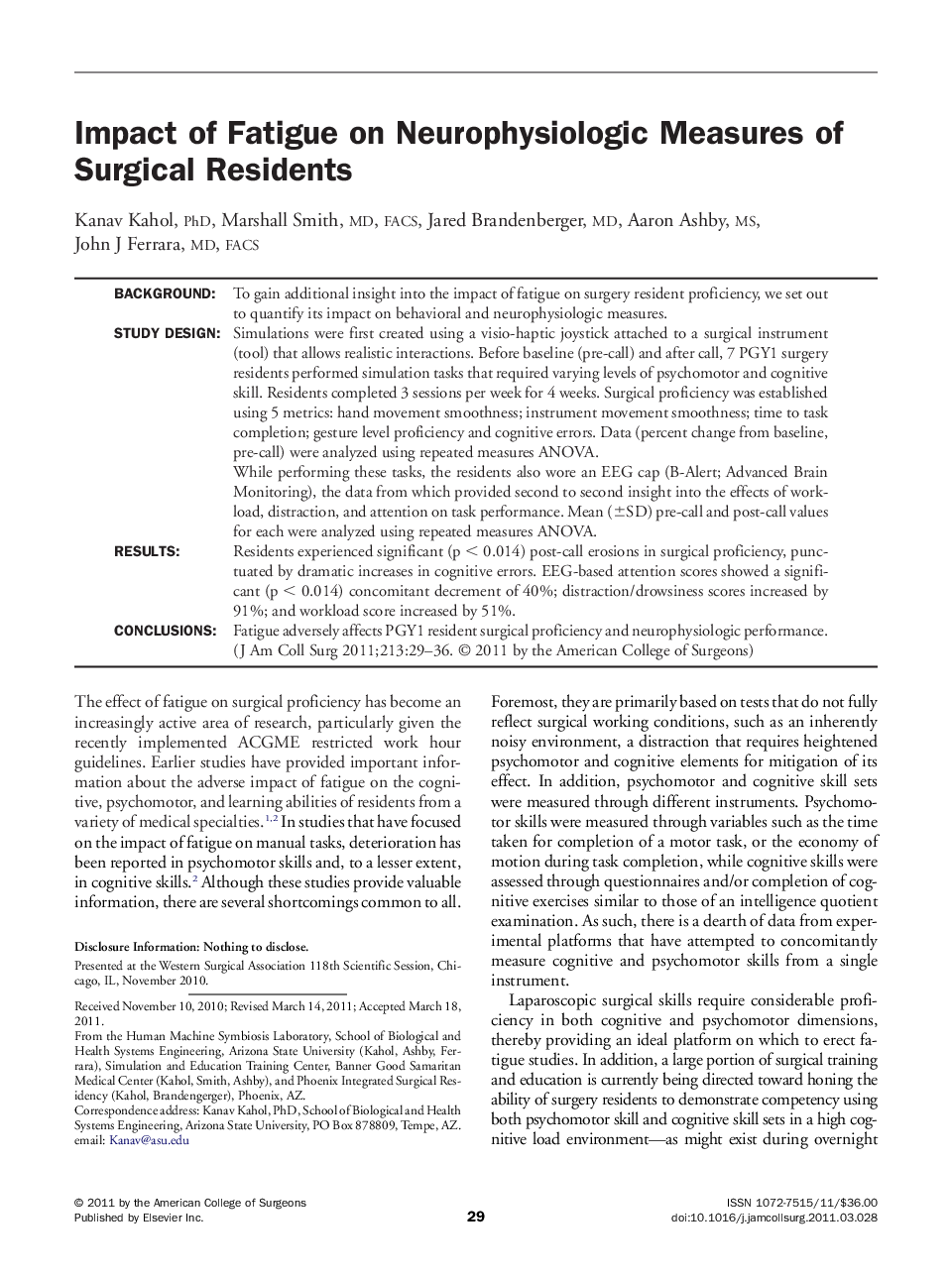| Article ID | Journal | Published Year | Pages | File Type |
|---|---|---|---|---|
| 4292987 | Journal of the American College of Surgeons | 2011 | 6 Pages |
BackgroundTo gain additional insight into the impact of fatigue on surgery resident proficiency, we set out to quantify its impact on behavioral and neurophysiologic measures.Study DesignSimulations were first created using a visio-haptic joystick attached to a surgical instrument (tool) that allows realistic interactions. Before baseline (pre-call) and after call, 7 PGY1 surgery residents performed simulation tasks that required varying levels of psychomotor and cognitive skill. Residents completed 3 sessions per week for 4 weeks. Surgical proficiency was established using 5 metrics: hand movement smoothness; instrument movement smoothness; time to task completion; gesture level proficiency and cognitive errors. Data (percent change from baseline, pre-call) were analyzed using repeated measures ANOVA.While performing these tasks, the residents also wore an EEG cap (B-Alert; Advanced Brain Monitoring), the data from which provided second to second insight into the effects of workload, distraction, and attention on task performance. Mean (±SD) pre-call and post-call values for each were analyzed using repeated measures ANOVA.ResultsResidents experienced significant (p < 0.014) post-call erosions in surgical proficiency, punctuated by dramatic increases in cognitive errors. EEG-based attention scores showed a significant (p < 0.014) concomitant decrement of 40%; distraction/drowsiness scores increased by 91%; and workload score increased by 51%.ConclusionsFatigue adversely affects PGY1 resident surgical proficiency and neurophysiologic performance.
